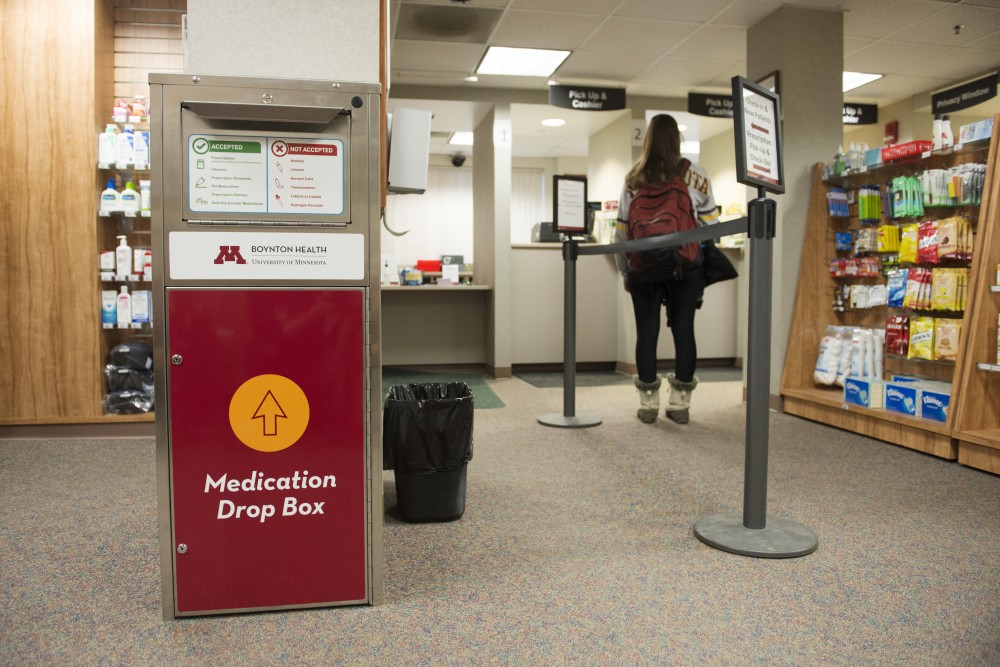Boynton Health’s pharmacy is collecting unused prescription drugs in an effort to prevent opioid abuse.
The drug disposal box — which was installed by Boynton and then promoted by three College of Pharmacy students — collected 37 pounds of leftover pills in its first three months on campus. Its contents were incinerated on Nov. 19, and the bin will continue to collect leftover pills in coming months.
Unused prescription drugs often end up in people’s homes for future medical use rather than being properly disposed of, said Katie Gray, one of the students who advocated for the bin.
“They’re [thinking], ‘my insurance paid money to pay for this medication, [so] I should keep it just in case it can be used for another illness,’” she said.
According to a 2018 study by the American Academy of Pediatrics, 48 percent of U.S. parents kept leftover antibiotics in their homes, with many of them giving unused medications to their children.
But reusing old medications can be dangerous to public health as medical conditions change over time, Gray said.
“Even if it’s the same medication that you had six months ago, a lot can change in those six months,” she said. “Not consulting with a pharmacist again can be really dangerous in those situations.”
Even if people do dispose of their medications at home, children and pets can find the pills in the trash, said Jeremy Kobany, one of the leaders of the initiative.
Failing to dispose of leftover pills can also contribute to the ongoing opioid crisis. Consuming unused pills to self-medicate for pain and mental illness can lead to drug abuse and opioid addiction, Gray said.
“If someone wants to experiment or if they’re dealing with a mental illness [and their prescription] is just sitting there, that’s one of the huge risks,” she said.
In 2014, Americans aged 18 to 25 misused prescription pain relievers at a rate of 12 percent — the highest proportion of any age group in the U.S., according to the National Institute on Drug Abuse. This misuse of prescription drugs led to the deaths of more than 1,700 young adults in that age group.
“If you can get rid of the amount of leftovers in somebody’s home, you can help prevent part of the opioid crisis from starting,” Kobany said.
Improperly disposing of prescription drugs can also lead to environmental damage, said Pepper Meyer, the director of Boynton Pharmacy.
“If patients dispose of their medications in the garbage or through the sewer system … those drugs seep into the environment,” she said. “Providing a safe place to dispose of drugs that doesn’t hurt our environment is a great service.”
In the coming months, Kobany plans to further promote the disposal bin and its benefits through posters, digital displays and handouts. He also hopes the pharmacy will print information about the disposal bins on its prescription bags and inform all patients about the dangers of leaving leftover medications at home.
Correction: A previous version of this story said the bin was installed at the request of three College of Pharmacy students. The students requested to promote the bin.








